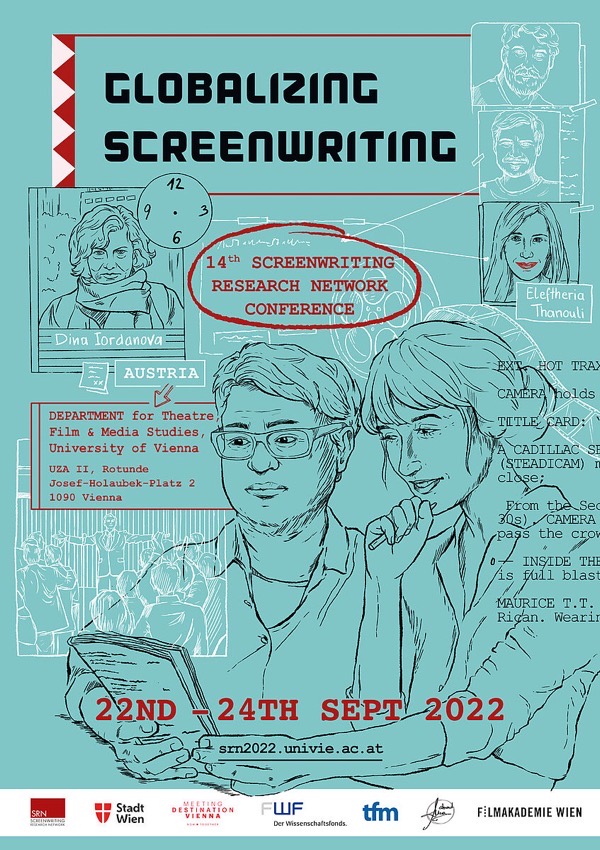Transcript:
…and there’s a lot of dudes in town — really good guys — who are learning that wait a minute, we’re used to talking over women and all that sort of thing and we have to stop and let people finish their thoughts before we dive in with something else and then people forget things and then women also have to be good — you know the classic story is that you might pitch an idea and no one takes it up and 15 minutes later a guy pitches it in the writer’s room and then everyone’s like oh yeah let’s go with that. Then you have to say that’s exactly what I said 10 minutes ago and then they’ll all kind of oh yeah. You’re right. You have to claim your talent or other people will gladly walk over it. So I think those are behavioral things right but we don’t want to — we don’t have to be super dude-like to succeed. We just have to be strong and know that you’re good at what you do…and you’ll succeed.
The Stephens College MFA in TV and Screenwriting is building a relationship with the Autry Museum of the American West since both organizations are devoted to bringing out more diverse and untold stories. Last year we were able to take our cohort of graduating MFA candidates to the museum’s theatre for a showing of Michael Wilson’s Salt of the Earth and we had plans to present a film of our choice this year – but of course the pandemic changed all that. Instead, Autry Curator Josh Garrett-Davis asked me if I would sit for an interview about female screenwriters in the western genre and so “When Women Wrote Westerns” came to be a part of their “What Is a Western? Interview Series”.
I had a great time discussing so many wonderful women writers – from Jeanne MacPherson to D.C. Fontana to Edna Ferber to Emily Andras. If you love westerns I suggest you watch Josh’s other interviews covering everything from the work of Native Americans in Western movies to films in the western-horror hybrid. — ![]()
What this entire presentation
As part of a series exploring the significance of the Western genre and the ways in which the movies shape our understanding of the American West, Autry Curator Josh Garrett-Davis interviews Professor Rosanne Welch about the women screenwriters of Hollywood and their contributions to the Western genre.
Find more information at the Autry Museum of the American West
Podcast: Play in new window | Download
Subscribe: RSS
![19 Claim Your Space in the Room from What Is a Western? Interview Series: When Women Wrote Westerns from the Autry Museum of the American West [Video]](https://rosannewelch.com/wp-content/uploads/2022/11/what-is-a-western-19.jpg)
![18 The Heroine's Journey from What Is a Western? Interview Series: When Women Wrote Westerns from the Autry Museum of the American West [Video]](https://rosannewelch.com/wp-content/uploads/2022/11/what-is-a-western-18.jpg)
![05 Even More On Suso Cecchi d'Amico From Jeanne to Suso to Julie to Spike: How Jeanne Macpherson’s Manual on Screenwriting Influenced Italian Realism which Influenced Black Independent Film in the U.S. [Video]](https://rosannewelch.com/wp-content/uploads/2022/11/rmw-srn-vienna-2022-05.jpg)


![17 Opportunities and Challenges from What Is a Western? Interview Series: When Women Wrote Westerns from the Autry Museum of the American West [Video]](https://rosannewelch.com/wp-content/uploads/2022/11/what-is-a-western-17.jpg)
![04 More On Suso Cecchi d'Amico From Jeanne to Suso to Julie to Spike: How Jeanne Macpherson’s Manual on Screenwriting Influenced Italian Realism which Influenced Black Independent Film in the U.S. [Video]](https://rosannewelch.com/wp-content/uploads/2022/11/rmw-srn-vienna-2022-04.jpg)
![16 The Forgotten Screenwriter from What Is a Western? Interview Series: When Women Wrote Westerns from the Autry Museum of the American West [Video]](https://rosannewelch.com/wp-content/uploads/2022/10/what-is-a-western-16.jpg)
![03 Jeanne Macpherson & Suso Cecchi d'Amico From Jeanne to Suso to Julie to Spike: How Jeanne Macpherson’s Manual on Screenwriting Influenced Italian Realism which Influenced Black Independent Film in the U.S. [Video]](https://rosannewelch.com/wp-content/uploads/2022/10/rmw-srn-vienna-2022-03.jpg)
![15 We Quote Dialogue, Not Camera Moves from What Is a Western? Interview Series: When Women Wrote Westerns from the Autry Museum of the American West [Video]](https://rosannewelch.com/wp-content/uploads/2022/10/rmw-western-15.jpg)
![02 Who was JeanneMacpherson? From Jeanne to Suso to Julie to Spike: How Jeanne Macpherson’s Manual on Screenwriting Influenced Italian Realism which Influenced Black Independent Film in the U.S. [Video]](https://rosannewelch.com/wp-content/uploads/2022/10/rmw-srn-vienna-2022-02.jpg)
![14 More On Writer Vs. Director from What Is a Western? Interview Series: When Women Wrote Westerns from the Autry Museum of the American West [Video]](https://rosannewelch.com/wp-content/uploads/2022/10/rmw-western-14.jpg)